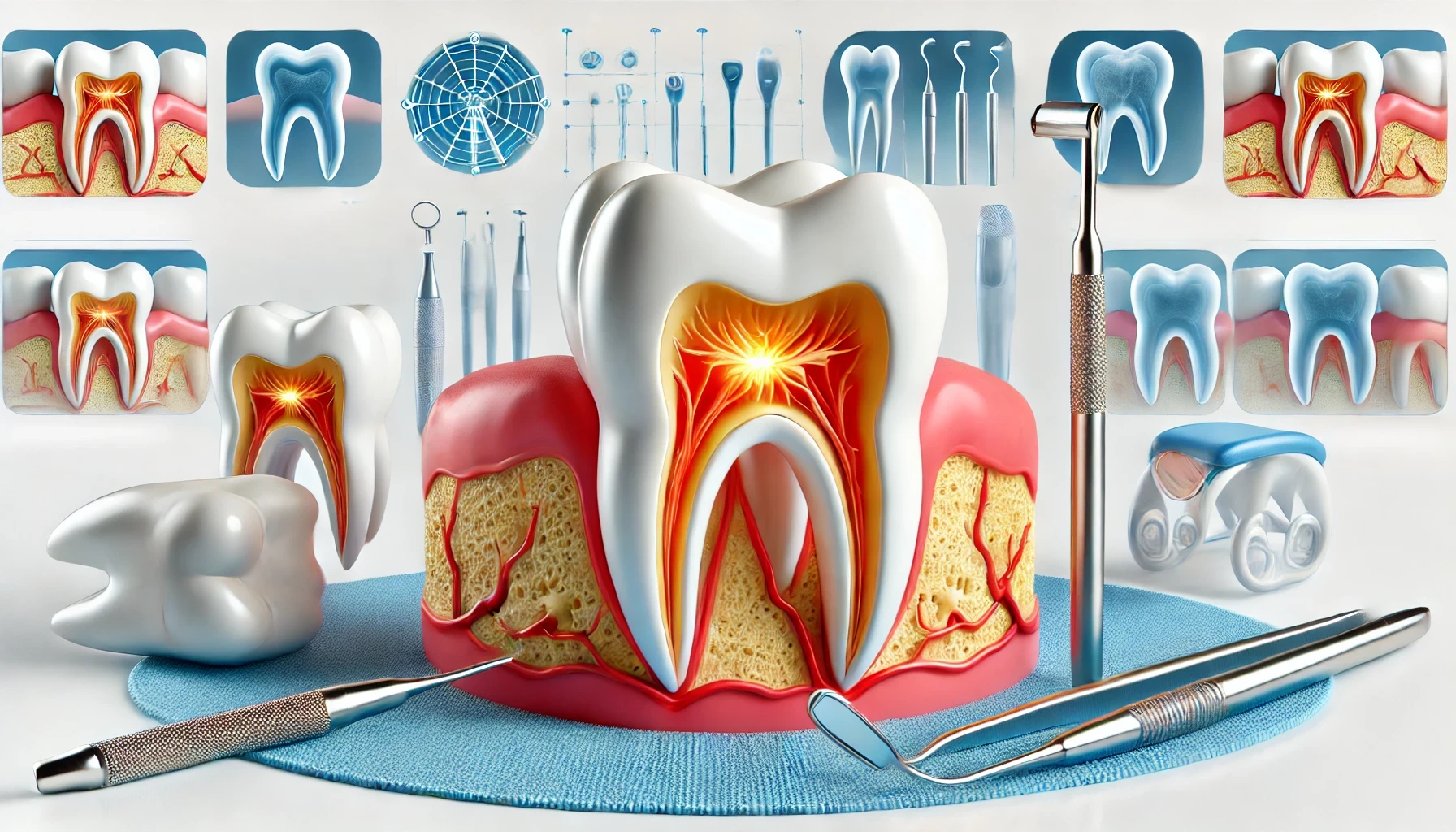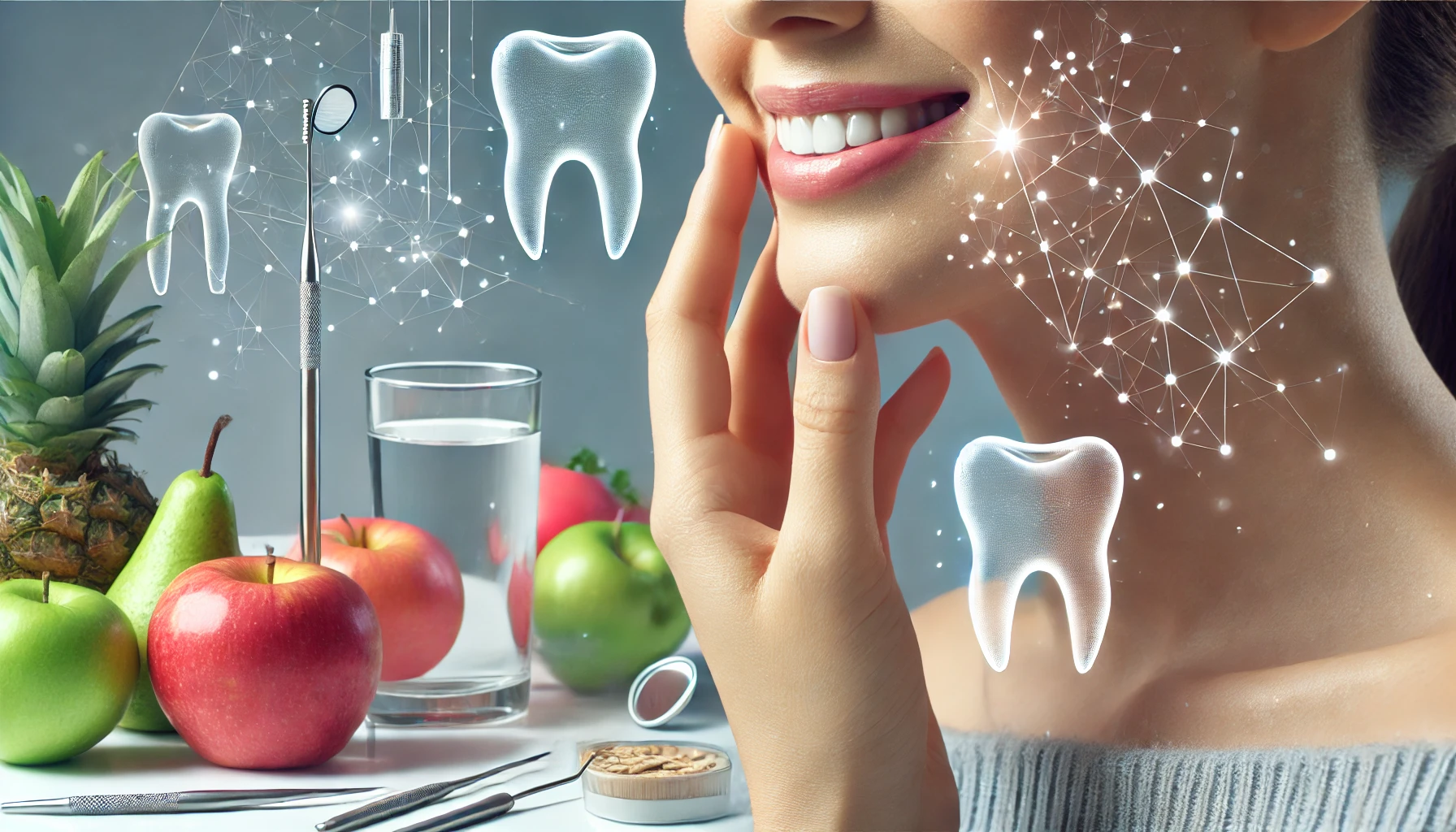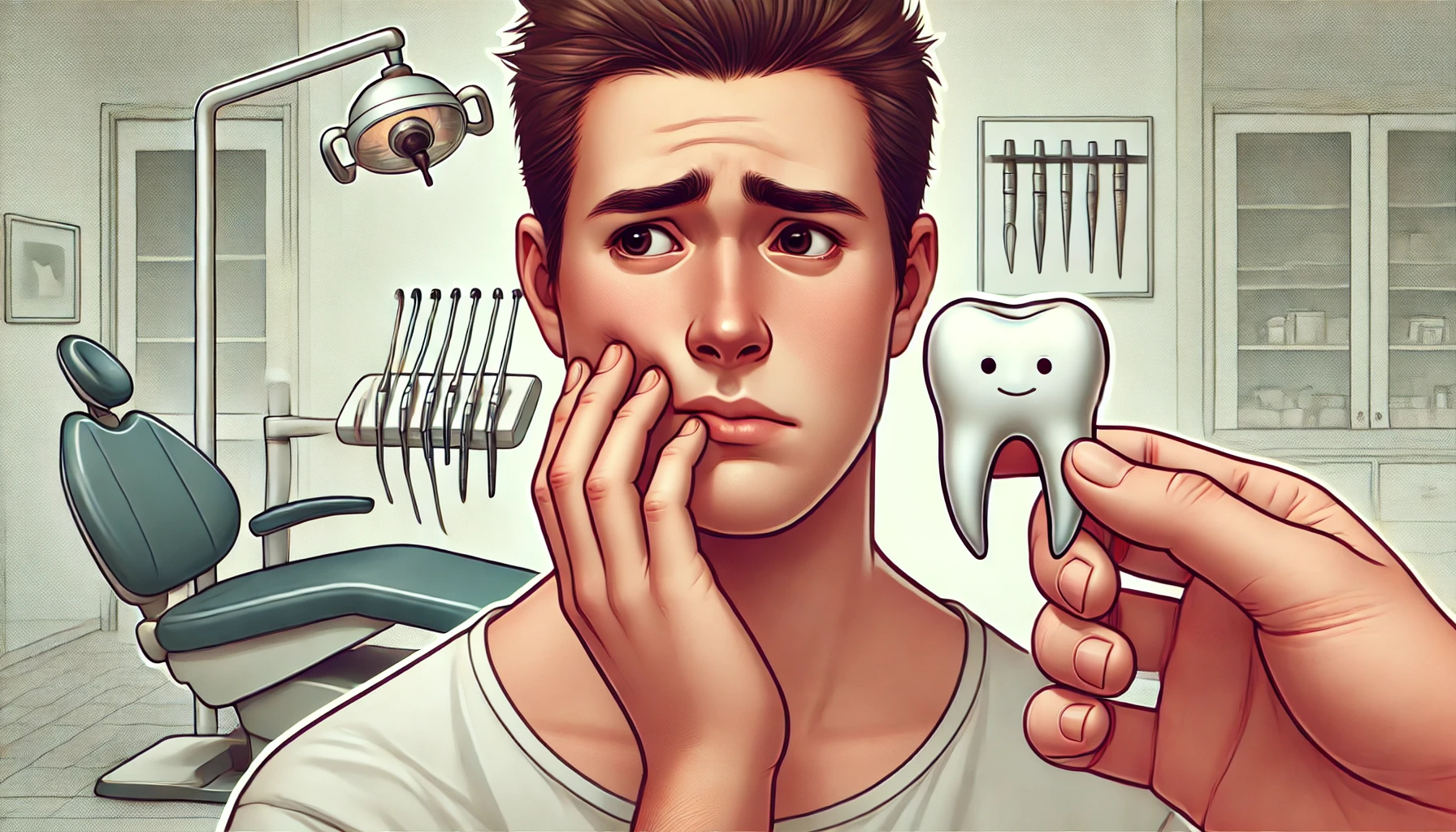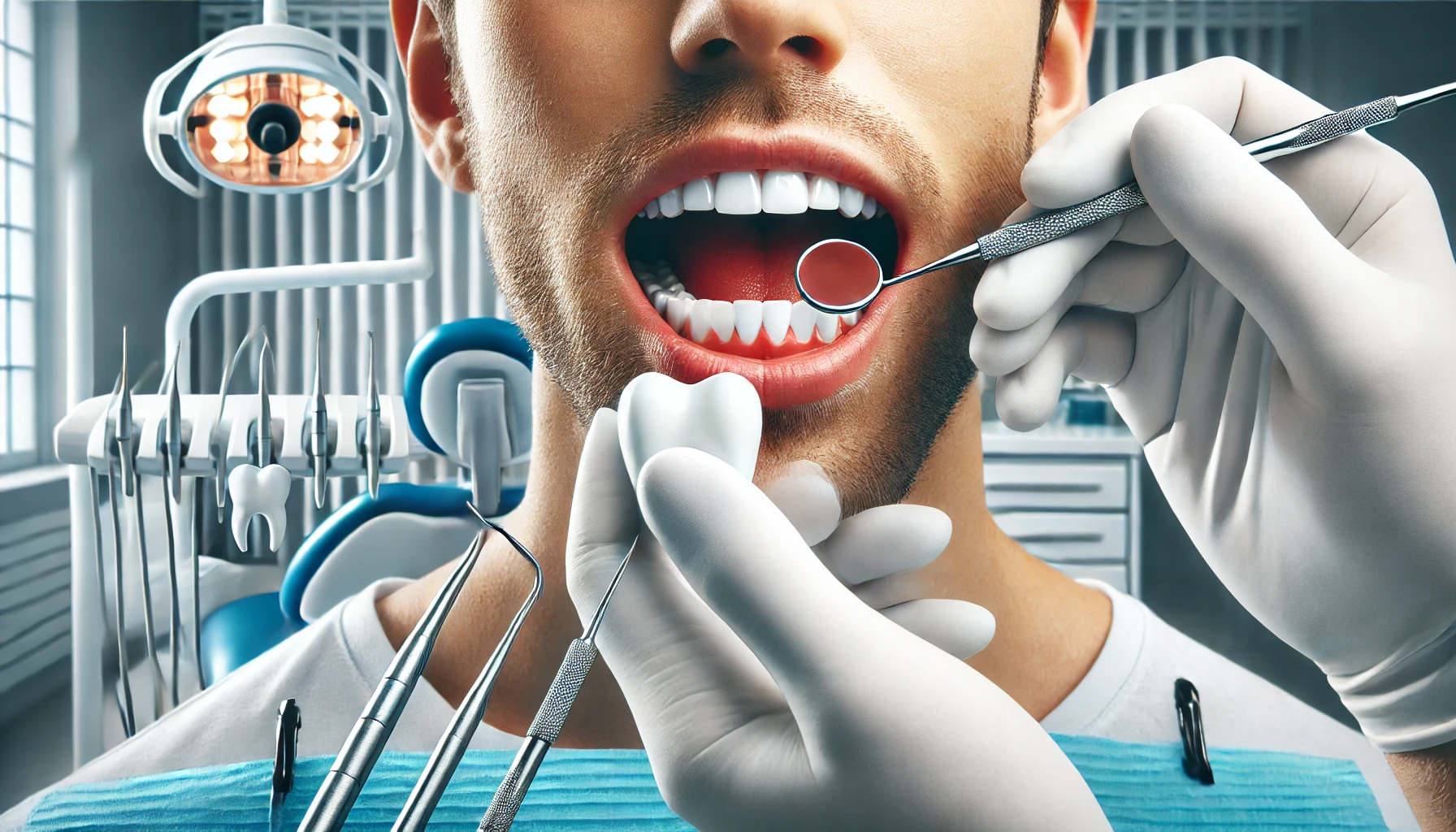Having a loose tooth as an adult can be alarming, as it may indicate underlying dental issues that need immediate attention. While a loose tooth is normal for children losing their baby teeth, it is a cause for concern for adults.
This article will explore common causes of a loose tooth, steps to take when you have one, and when to seek professional dental care to prevent further complications.
Causes of loose teeth in adults
Periodontal disease is a primary cause of loose teeth in adults, as it damages the gum and bone supporting the teeth. Injuries or trauma to the mouth can also result in teeth becoming loose due to damage to the surrounding tissues.
Osteoporosis, a condition that weakens bones, may affect the jawbone and loosen teeth over time. Habitual teeth grinding, or bruxism, exerts excessive pressure on teeth, potentially causing them to loosen.
Lastly, infections or abscesses can erode the structures holding the teeth in place, further contributing to looseness. Addressing these issues promptly can prevent tooth loss and other complications.
How to strengthen a loose tooth
If you have a loose tooth, there are steps you can take to strengthen it and avoid further damage.
Firstly, make sure to practice good oral hygiene by brushing twice a day and flossing daily. This helps remove plaque and bacteria that can cause periodontal disease.
Avoid hard or sticky foods that can put additional pressure on the already loose tooth. Instead, opt for softer options like mashed potatoes or smoothies.
Consider wearing a mouthguard at night if you grind your teeth while sleeping. This will protect your teeth from further damage and give them time to heal.
When to see a dentist for a loose tooth
While taking the above steps can help strengthen a loose tooth, it is essential to see a dentist if the problem persists.
If your tooth continues to feel unstable after a few days of taking care of it, or you experience pain or swelling in the surrounding area, make an appointment with your dentist. They may recommend treatments such as a dental splint, which bonds the loose tooth to adjacent teeth for stability. In severe cases, they may suggest a root canal or extraction.
Plus, visiting a dentist for regular check-ups can help identify and address any underlying issues that may be causing the looseness.
Treatment options for loose teeth
Treatment options for loose teeth vary based on the cause and severity of the issue.
One common approach is the use of a dental splint, which temporarily binds the loose tooth to adjoining teeth, providing stability. If the cause is periodontal disease, deep cleaning practices like scaling and root planing may be necessary to remove plaque and tartar.
For severe cases, surgical intervention might be required to rebuild the bone structure around the affected tooth. In some instances, regenerative procedures may be employed to restore lost bone and tissue. Always consult with a dentist to determine the most appropriate treatment plan.
Here’s what to do if you have a loose tooth:
- Don’t panic: Stay calm and avoid wiggling or touching the loose tooth, as this can worsen the problem.
- Avoid chewing on that side: To prevent further damage, avoid chewing with the loose tooth and stick to soft foods until you can see a dentist.
- Practice good oral hygiene: Continue to brush and floss gently around the loose tooth, but be careful not to apply too much pressure.
- Use a saltwater rinse: Rinsing with warm saltwater can help reduce inflammation and prevent infection.
- See a dentist as soon as possible: A loose tooth in adults can signal gum disease or trauma, and early treatment can prevent tooth loss.
- Consider using a mouthguard: If you grind your teeth at night, wearing a mouthguard can help protect the loose tooth from further damage.
Summary
When you have a loose tooth, it’s important to take swift action to avoid further complications. Common causes include trauma, gum disease, and weakening tooth roots.
By following proper care, such as avoiding chewing on the affected side and practicing gentle oral hygiene, you can minimize the risk of worsening the condition. However, the most crucial step is to see a dentist promptly for a thorough examination and appropriate treatment to save the tooth.
Questions and Answers
What causes a loose tooth in adults?
A loose tooth in adults is commonly caused by gum disease, trauma, or bone loss around the tooth.
Can a loose tooth heal on its own?
In some cases, a slightly loose tooth may tighten back up if the underlying issue is treated, but it’s essential to see a dentist for proper evaluation.
What should I avoid doing with a loose tooth?
Avoid wiggling or touching the loose tooth, and refrain from chewing hard foods that could cause more damage.
How can a dentist treat a loose tooth?
Treatment options include splinting the tooth to adjacent teeth, deep cleaning to address gum disease, or surgical procedures for severe cases.
Will a loose tooth eventually fall out?
If left untreated, a loose tooth may fall out, especially if the cause is related to advanced gum disease or trauma.
Can gum disease cause teeth to become loose?
Yes, gum disease can cause the bone and gum tissues that support the teeth to deteriorate, leading to tooth looseness.
How can I prevent my teeth from becoming loose in the future?
Maintain good oral hygiene, attend regular dental check-ups, and avoid habits like grinding your teeth or using them to open objects.
What should I do if my tooth becomes loose after an injury?
If a tooth is loose due to trauma, see a dentist immediately for assessment. Quick intervention can help save the tooth.
Can children’s loose teeth be treated the same as adults’?
No, a child’s loose teeth are typically due to natural tooth loss as baby teeth fall out, whereas an adult’s loose tooth requires professional attention.
How can I strengthen my teeth to prevent looseness?
Practice good oral hygiene, avoid smoking, eat a balanced diet, and protect your teeth from trauma by wearing mouthguards during sports.






